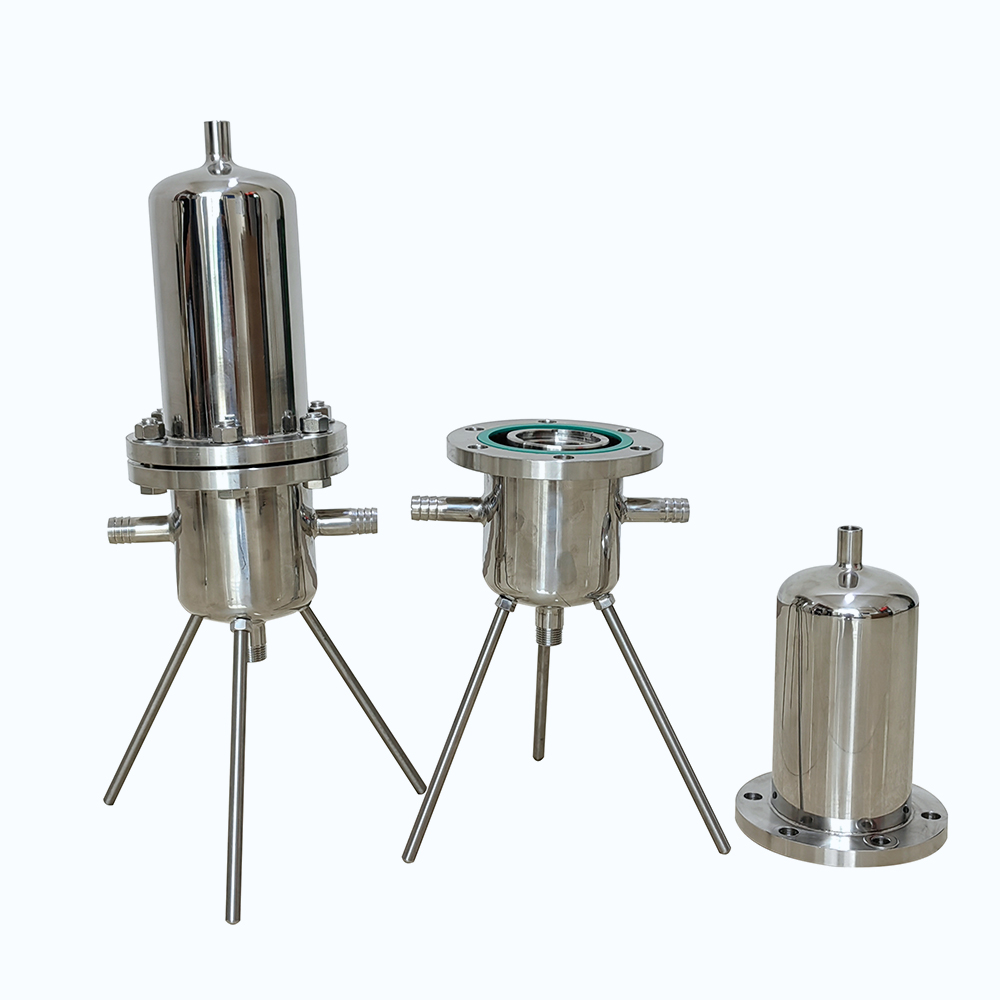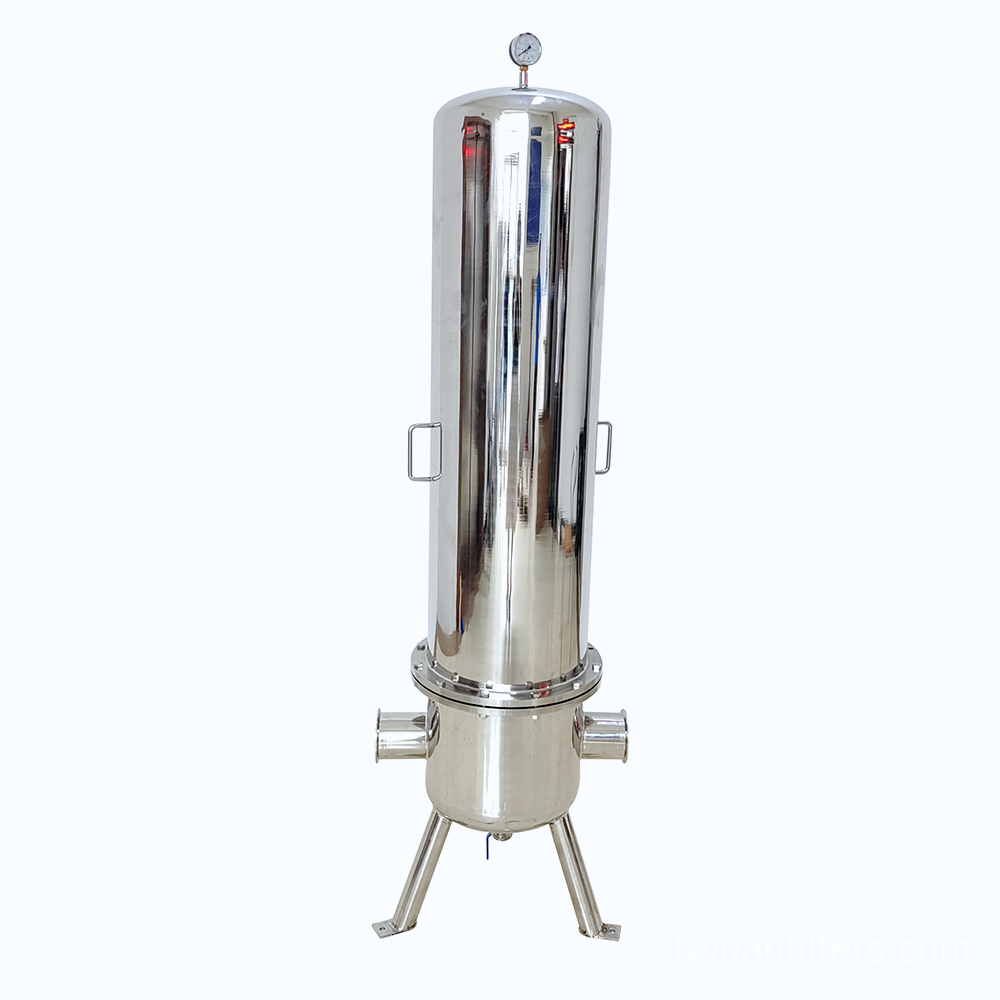Understanding the different types of gas filters: A comprehensive guide by Lvyuan
Various industries rely on gas filters to remove contaminants such as particulates and moisture, as well as oil and hazardous gases, from gas streams to maintain safety levels, operational efficiency, and environmental compliance. The guide examines gas filters of four different types: particulate, adsorption, coalescing, and combination, explaining their operating principles and industrial applications in the oil and gas, pharmaceutical, and food processing and manufacturing sectors. The selection process for appropriate filters requires an understanding of filtration efficiency and material compatibility, together with maintenance requirements. Industrial gas filters improve operational safety and efficiency throughout industrial plants.

Introduction to Gas Filters
Gas filters are vital industrial and commercial equipment that remove contaminants from gas streams to ensure safety, operational efficiency, and compliance with environmental standards. Gas filters perform an essential function by removing particulates, moisture, oil, and hazardous gases from gas streams to maintain air quality and protect equipment. The right filtration system for the manufacturing, oil and gas, pharmaceutical, and food processing industries provides significant operational benefits.
This guide explains the different types and applications of industrial gas filters and describes their operating principles. By the end of this guide, you will have a complete understanding of how these systems make industrial operations safer and more efficient.
The different types of gas filters
The different types of gas filters meet different filtration requirements in the market. This section explains the different types of gas filters and their operating characteristics.
Particle filter
Particulate filters exist to remove dust, dirt, and debris from flowing gas streams. The removal of airborne particles remains essential in HVAC systems, clean rooms, and industrial air intake systems, so these filters are widely used in these applications.
How they work: The physical barrier in particulate filters traps particles through a fibrous material or metal mesh structure as the gas flows through. The performance of these filters depends on their micron rating, which indicates how well they trap particles.
Applications: Particulate filters are widely used in industrial air filtration to protect equipment and provide clean airflow for critical environments such as semiconductor manufacturing and pharmaceutical production areas.
Adsorption filters
The special function of adsorption filters lies in their ability to extract gases and vapors from gas streams. Adsorption filters use activated carbon or zeolites as materials to trap contaminants.
How they work: The filtration mechanism relies on adsorption principles that cause gas molecules to adhere to the surface of the filter material. Due to its large surface area, activated carbon is an effective material for trapping odors and volatile organic compounds (VOCs).
Applications: The industrial use of adsorption filters is essential in chemical processing and air purification applications to remove harmful gases, eliminate odors, and improve air quality.
Coalescing filter
Coalescing filters work by removing liquid aerosols and droplets from gas streams, making them suitable for compressed air or natural gas applications.
How it works: The filter system combines small liquid droplets through its special medium before they fall to the bottom, where they are discharged. The filtration method ensures that the gas stream remains dry while removing all liquid contaminants.
Applications: The oil and gas industry uses coalescing filters to remove oil and water from natural gas streams to meet pipeline requirements.
Combination filter
Multiple filtration techniques are combined within a single unit to create combination filters that combine particulate and adsorption methods. The combination filter design addresses complex filtration requirements to remove different types of contaminants simultaneously.
How they work: These filters combine different filtration technologies to treat multiple contaminants in a single filtration process. A combination filter consists of two layers where solid particles are trapped by the particle layer and gases are adsorbed by activated carbon.
Applications: The combination filter is used in food processing plants that need to control odors and particulates and in compressed air systems that require protection against oil, water, and particulates.

Key factors to consider when selecting gas filters
When selecting industrial gas filters, several elements must be carefully considered to achieve maximum operational performance and extended service life.
Filtration efficiency
The selection of gas filters depends largely on their filtration efficiency. Filter efficiency depends on its ability to trap particles of a certain size. A 1 micron-rated filter has the ability to trap particles that are 1 micron in size.
The pharmaceutical and electronics manufacturing industries require high-efficiency filters because small particles cause significant production problems.
Material compatibility
The material of a filter must be suitable for both the type of gas and the operating conditions. Stainless steel metal gas filters are effective in demanding high-temperature and corrosive environments because they resist degradation and maintain their durability.
Choosing the wrong material will result in filter failure, contamination, and safety risks.
Maintenance and lifetime
The life of a gas filter depends on various operating conditions and the amount of contaminants it has to handle. An essential requirement to maintain consistent performance is regular maintenance, which includes both filter element replacement and reusable filter cleaning procedures.
Frequent maintenance practices result in longer filter system life by reducing downtime and resulting in lower long-term costs.

Gas filter applications in various industries
Gas filters serve a wide range of industries because each industry requires different filtration solutions. The following section examines the main applications for gas filters.
Oil & Gas Industry
Gas filters in the oil and gas sector are used to remove oil along with water and particulates from natural gas streams. The filtration process both maintains pipeline standards and protects downstream equipment.
Pharmaceutical industry
The pharmaceutical industry relies on gas filters to create sterile environments while maintaining product purity. The pharmaceutical industry uses filters to perform air compression and gas sterilization processes.
Food and beverage industry
Gas filters used in food processing operations protect against contamination by removing both particles and odors from air and gas streams. The proper functioning of gas filters remains necessary to protect both food safety and product quality standards.
Manufacturing and automotive
Gas filters are a fundamental component of compressed air systems and spray booths to maintain dry and clean air quality for manufacturing operations.
Conclusion
Modern industrial operations depend on gas filters to achieve clean, safe, and efficient gas streams. Different types of gas filters, including particulate and adsorption filters, as well as coalescing and combination filters, are used for different applications in different industries.
Lvyuan designs and manufactures high-quality metal gas filters to meet our customers' specific requirements. Our team provides support for both standard and customized gas filtration solutions. As one of the leading gas filter manufacturers, our company is dedicated to providing durable, efficient, and reliable filtration systems for industrial applications. Contact us now to discover our products and learn how we can support your filtration needs.

What is Sintered Metal Filter? Complete Guide by Lvyuan

Sintered PTFE Filters: Advanced Filtration for Demanding Environments

Metal Sintered Filters: Precision Filtering to Drive Industrial Upgrading

Choosing Sintered Filters: An Overview for Industrial Applications

What is a Sintered Metal Filter Disc? A Comprehensive Guide

What Are Sintered Metal Filters and How Do They Work?
Metal mesh filters
What maintenance is required for sintered wire mesh filter?
Regular cleaning is the primary maintenance for sintered wire mesh. The cleaning frequency depends on the application and the type of contaminants being filtered. Follow the manufacturer's guidelines for proper maintenance.
Sintered Titanium Filters
What are Sintered Titanium Filters?
Sintered titanium filters are porous metal components created through a sintering process, designed to provide efficient filtration in various applications.
For customization
What is your sample policy?
We can supply the sample if we have ready parts in stock, but the customers have to pay the sample cost and the courier cost.
For products
What sizes and shapes are available?
Our sintered metal filters come in a variety of sizes and shapes to meet different application needs. Common configurations include cylindrical, disc, and tube shapes, with customizable dimensions to fit specific requirements.
Porous Plastic Filter
How do I clean and maintain sintered plastic porous filters?
Sintered plastic porous filters can be cleaned using various methods, such as backwashing, ultrasonic cleaning, chemical cleaning, and steam sterilization, depending on the type of contaminants and the filter's compatibility with cleaning agents. Regular maintenance, such as inspection and replacement of filters, is essential to ensuring optimal performance.

Sintered powder metal filters
Sintered powder metal filters are crafted from compressed and sintered metal powders, forming a porous structure. Porosity: 28%-50% Permeability: 0.02-20L/cm²minPa Pressure Resistance: 0.5Mpa Temperature Resistance: Less than 280℃

Bag filter housing
Bag filter housings are essential components in industrial filtration systems, designed to remove contaminants from liquids. To enhance the functionality and efficiency of bag filter housings, various features can be incorporated.

Sintered wire mesh filter
Benefit from outstanding high-pressure resistance and consistent filtration efficiency with Lvyuan's sintered metal mesh. Our sintered wire mesh finds versatile applications in diffuser screens, centrifuges, breather vents, fluidized beds, chromatography, polymer processing, petrochemical industries, hydraulic filters, and more.

Stainless steel multi cartridge filter housing
Discover unparalleled filtration efficiency with our Stainless Steel Multi Cartridge Filter Housing – a testament to precision engineering and reliability.

Sanitary filter housing
This filter housing will allow you to filter large volumes of nanoemulsion with ease. Sanitary vent and drain valves permit easy venting, draining, sampling, or integrity testing operations. The new cartridge locking design features additional cut-outs for traditional half-moon portions of the Code 7 bayonet locks, enhancing clean ability and drain ability.

stainless steel filter water
Lvyuan’s sintered stainless steel filter stands as a pivotal filtration element crafted through a meticulous sintering process, with stainless steel serving as the core material.

Stainless steel pleated filter cartridge
Lvyuan Stainless Steel Pleat Filter Cartridge constructed from high-quality SS 304 or SS 316L material, this filter exhibits exceptional resistance to high temperatures and rust.

Stainless Steel Duplex filter housing
As the manufacturer, we offer a comprehensive range of Duplex Filter Housings designed to provide efficient and reliable filtration solutions for various industrial applications.
© 2024 Lvyuan All Rights Reserved. | Privacy policy • Terms and conditions
